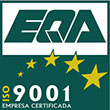Choosing the right bellows is key to efficiency and durability
Choosing the right industrial bellows is not a simple technical procedure. It’s a strategic decision that directly influences operational efficiency, system safety, and machinery longevity. Using the wrong bellows can lead to premature breakdowns, unplanned downtime, and high maintenance or replacement costs. In this guide, we explain how to make the best choice to avoid costly mistakes and ensure optimal performance.
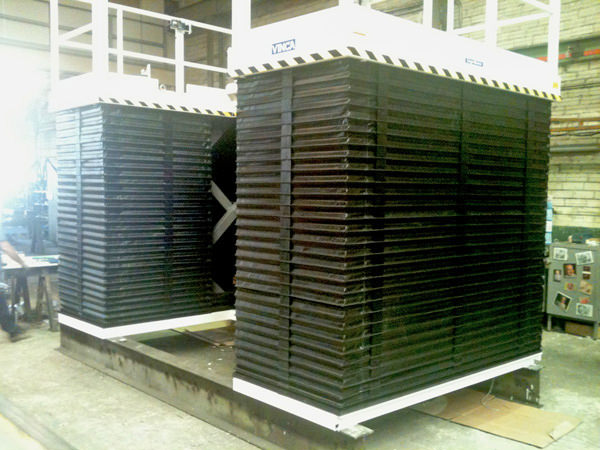
What is an industrial bellows and what is it used for?
An industrial bellows is a flexible component, usually made of leather, rubber, or technical fabrics, whose purpose is to protect moving mechanisms from external agents such as dust, liquids, temperature, or chemicals. It also allows continuous movement between parts without damage.
It is widely used in sectors such as wastewater treatment plants (WWTPs), industrial automation, heavy machinery, robotics, the chemical industry, rail transportation, among many others.
Critical Factors to Consider Depending on the Working Environment
To choose a bellows correctly, it is necessary to thoroughly analyze the environment in which it will operate. These are the key factors:
1. Operating temperature
Thermal conditions can drastically affect the bellows’ durability:
● High temperatures (+100°C): require materials such as silicone, PTFE, or heat-treated leather.
● Low temperatures (below -20°C): require flexible materials such as neoprene or technical PVC that do not harden or crack.
2. Pressure and mechanical load
If the bellows will be exposed to external forces (internal pressure or compressive expansion movements), it must be designed with the necessary thickness and structure to withstand them. Improper sizing can lead to permanent deformation or breakage.
3. Exposure to chemicals
Substances such as oils, solvents, chlorine, acids, or industrial gases require chemically compatible materials. For example, a common rubber bellows will not withstand prolonged exposure to sulfuric acid. In these cases, it is advisable to use materials such as technical polyurethane, treated leather, or PTFE.
4. Humidity level or water immersion
In humid environments or environments with direct contact with liquids (such as WWTPs or wash chambers), bellows with high absorption resistance and integrated sealing systems are required. Waterproof materials such as reinforced PVC or oiled leather are ideal.
5. Type of movement (linear, rotary, mixed)
Each type of movement requires a specific design:
● Linear: symmetrical folds and extension length.
● Rotary: elastic and wear-resistant materials.
● Mixed: combination of reinforcements and hybrid materials.
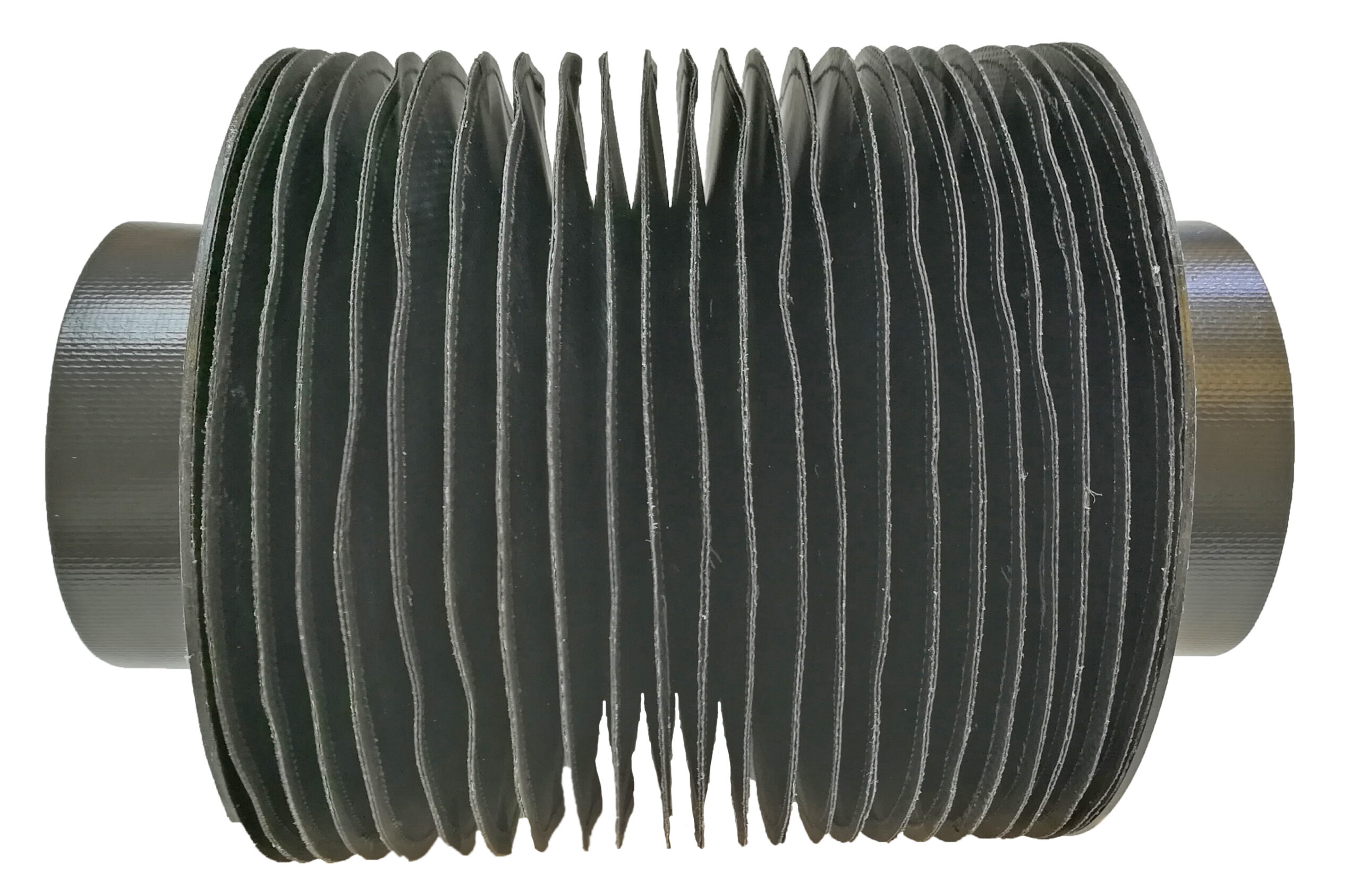
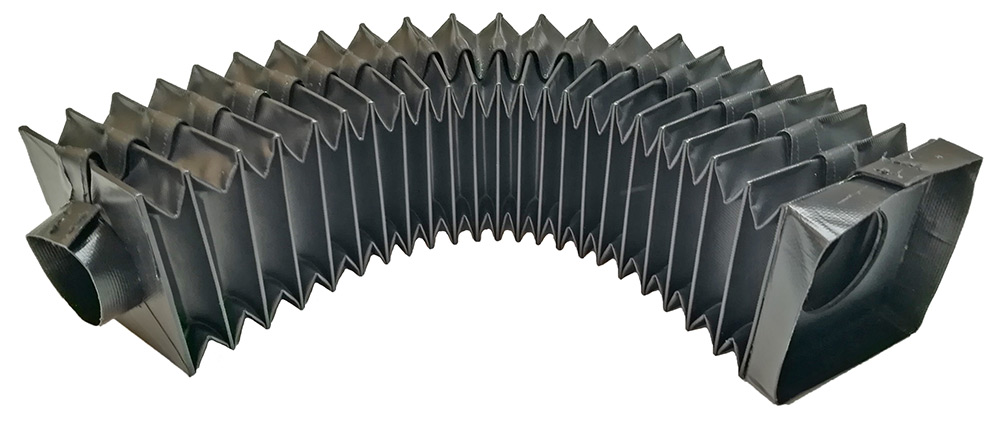
Comparison of materials for industrial bellows
| Material | Advantages | Disadvantages | Recommended applications |
| Industrial leather | High resistance, durable, flexible | Not suitable for very aggressive chemicals | WWTP, heavy machinery, dry environments |
| Neoprene | Flexible, good chemical resistance | Sensitive to very high temperatures | Automotive, assembly lines |
| Silicone | High thermal resistance | Lower mechanical strength | Ovens, thermal applications |
| Technical PVC | Economical, waterproof | Lower durability under friction | Robotics, cable protection |
| PTFE | Inert, chemically resistant | High cost | Chemical, pharmaceutical industries |
Custom Design vs. Standard Solutions
Choosing custom bellows can avoid many problems down the road. While standard solutions may be more economical initially, they don’t always adapt to the geometry or actual requirements of the work environment.
Advantages of Custom Design:
● Perfect fit without forcing parts.
● Greater durability.
● Reduced vibration and leaks.
● Better performance and less maintenance.
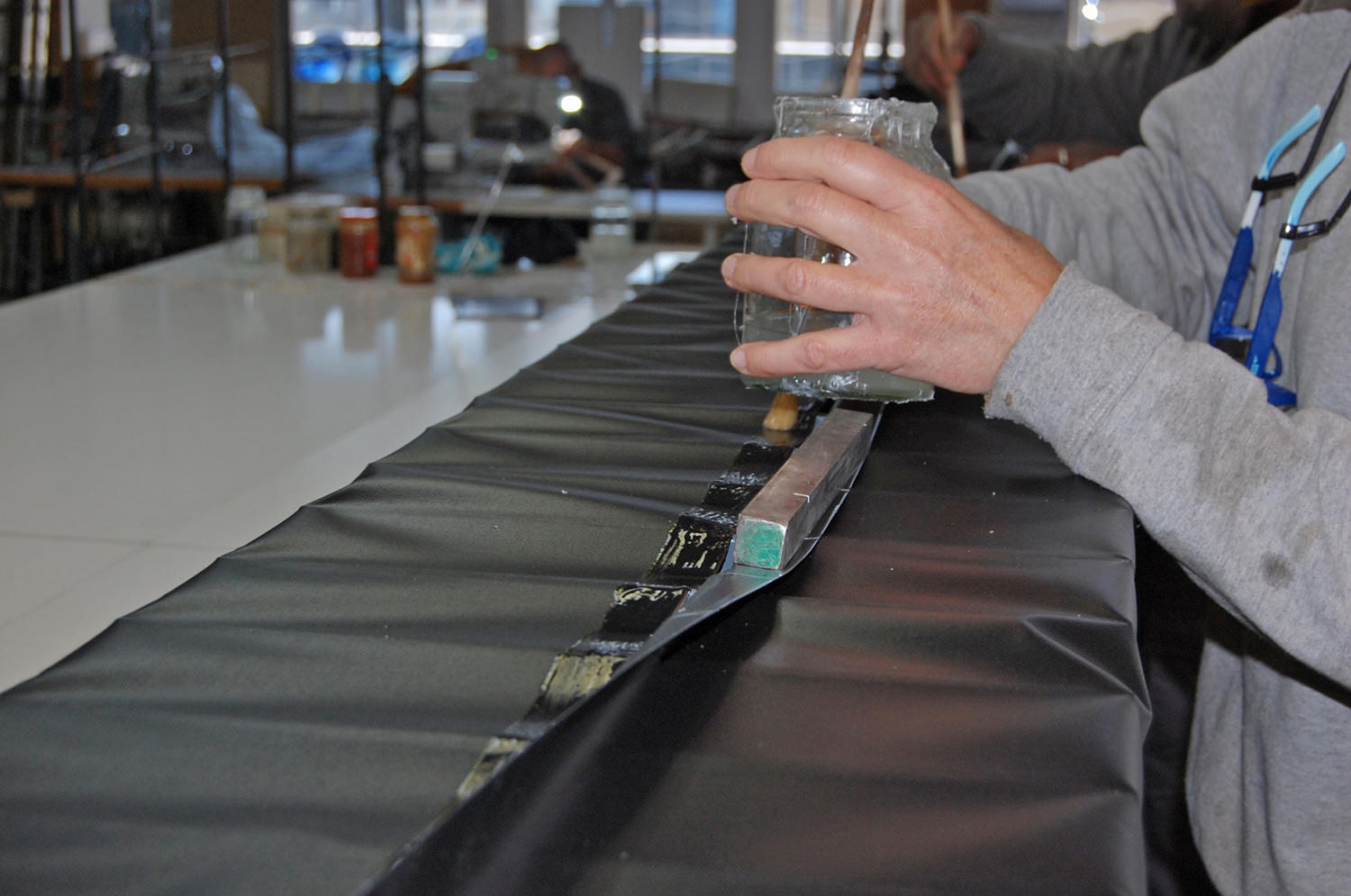
Criteria for selectingindustrial bellows suppliers
Not all manufacturers offer the same level of quality or technical support. Consider the following aspects when choosing a supplier:
● Experience in the industrial sector.
● Custom manufacturing capabilities.
● ISO 9001:2015 certification or other quality standards.
● Fast manufacturing and delivery.
● Personalized technical support.
Lluis Creus S.L.: Experts in custom bellows manufacturing
With over 148 years of experience, at Lluis Creus S.L. we are leaders in the manufacture of custom industrial bellows, especially for applications in wastewater treatment plants (WWTPs) and industrial machinery.
We are the only industrial leather handlers in Catalonia and use technologies such as waterjet and laser cutting to ensure precision and durability.
We are also ISO 9001:2015 certified, ensuring consistent quality in every project.

